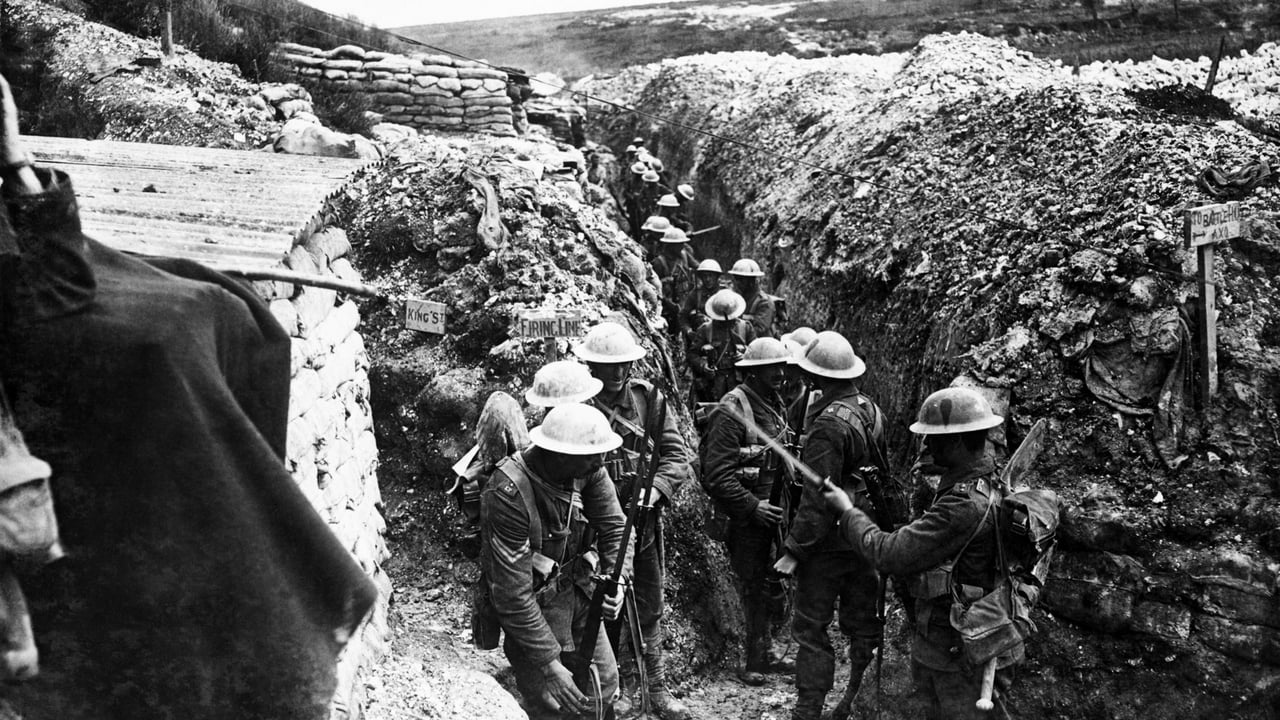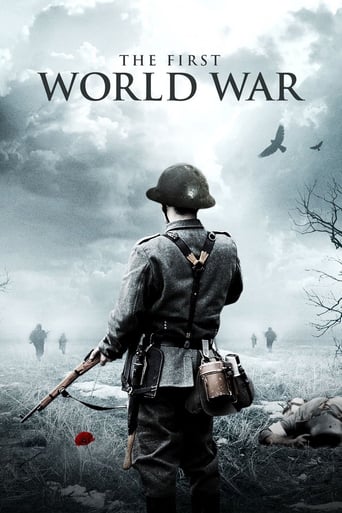

Imagine if someone was making a documentary for the First Civil War without even mentioning Belgium ,what kind of documentary would that be deemed? Now the producers managed to achieve no mention of Greece, whilst having the opportunity to do so for 10 episodes!And no, we are not talking about interpretations of facts (the Armenian/Pontian genocide is 'disputed' according to the authors) , we are talking about just mentioning Greece (!) despite the fact that Greece participated in the First World WarIf someone didn't know anything about the First World War ,this documentary gives the impression that Greece didn't participate at all!!That's an utter disgrace and the explanation is simple.Either the producers did that one deliberately , or they are incompetentAnd whilst the documentary is in general well produced , they managed to fail spectacularly by NOT including one of the main countries who participated in the First World War
... View MoreOne of a small handful of great documentaries on the Great War. This series of ten episodes nicely explains the war simply and directly. It also manages to cover a variety of other subjects that most other documentaries and books on the subject don't, or example the fighting in the Italian mountains. I'm a student of the First World War and I find it hard to find good films on the subject. Most are dull affairs that rehash the same old facts and figures using a limited number of film clips. Here the filmmakers have broadened their net covering a wide variety of subjects, but also using footage of many of the locations shot today. The result is a series that makes the war very current and alive, no longer is it a far away and long ago war, but one that happened in places that still exist. Its magical. Its so good that I found that after the second episode I was rationing the episodes out since I didn't want the mere ten to run out too quickly. This is a must see not only for people wanting to know about the war but also wanting to know about how we got to today.
... View MoreI guess I'll simply echo UnionMan's sentiments. It's a well-balanced presentation of what used to be called The Great War before we learned to number them.It covers all aspects of the war and pulls no punches.There is footage here that you are guaranteed not to have seen before. A distant column of cavalrymen ride their horses along a dirt road. A huge explosion covers the center of the column with a cloud of dust. The last part of the column rides around the smoke. When, finally, the dust clears we see the column has halted and is looking back at the debris, which includes a couple of smudgy black figures flat on the ground, one of them a thrashing horse.Personalities are explored and politics brought in just enough to illuminate the battles that form the centerpiece of the film. Enough for us to see the seeds of the next war being sown.The images are finely defined in crisp black and white. The motion is smoothed out and takes place in real time, adjusted for the change in camera speed since the early days of cinema.What a bitter thing war is. The film prompts one to wonder why we rush to embrace another one every twenty years or so.There will probably not be another documentary dealing with World War I that will be the equal of this one.
... View MoreThere have been some pretty good documentary series on World War One - like the BBC's '1914-18' and 'The Great War,' which inspired 'The World at War' - but this Channel Four series is the best ever. Unlike almost all of the others it gives you a look at the WORLD war aspect of it, not just focusing on the Western Front or (like most poor US documentaries) on the last year when America was involved, you also see the war in Russia, in Arabia, in Africa to get a real sense of the scale. Unlike 1914-18 it takes a chronological look at the war, but does it in a riveting way: the first episode plays like a thriller, while others are like tragedies. And it doesn't fall in for clichés or easy targets. It dispels a lot of myths along the way (for example, did you know the assassinated Arch Duke Franz Ferdinand was anti-militarist and had actually prevented war breaking out several times? I didn't) and holds your attention throughout. And the haunting end title music written by a composer who died in the war is unforgettable.One of the greatest TV shows ever, it's a crime this is so little known and failed to win any major awards. It's on DVD and if you've any interest in the subject at all, it's the only WW1 doc you need to buy.
... View More